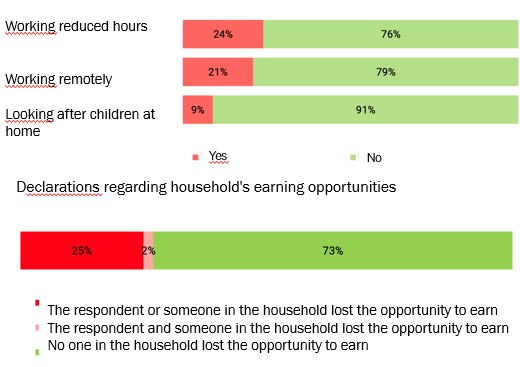The famous quote by William Gibson says that “the future is already present; it’s just not evenly distributed.” The same is true about the experience of the pandemic, as demonstrated by the CBOS study carried at the end of April.
It can be assumed that most readers have experienced working from home in recent months. A large part probably still works that way. That is why it seems to us that the majority of Poles have experienced the disadvantages associated with it – blurring the boundaries of work/free time, limited social contacts, long hours in “meetings” in front of a screen. Therefore, we assume that we have similar experiences, ills and expectations. However, when we look at the data, it shows that across the country, only 21% of respondents work remotely. At the same time, in cities with a population of 500,000 +, as much as 40%, and, e.g. in towns of 20-100,000 – only 9%. The differences also apply to the type of places in which the subjects work. Remote work is declared by 38% of employees of state and public institutions and 24% of employees of the private sector.

The same applies to the experience of job loss. On a national scale, 25% of respondents declare that they or somebody in their household have lost their job. This situation has hit hardest self-employed workers (54%), to a lesser extent, unskilled workers (34%), and to even lower extent technicians and middle-level staff (19%). The differences are also visible if we consider the income. The differences are also apparent if we consider the income criterion. 38% of people with incomes up to PLN 1,000 per person were affected by job loss, and 22% earned PLN 3,000 or more. The differences are visible in virtually every dimension studied: the percentage of people with reduced working hours (31% of those earning 1500-1999, below 20% of those representing the highest and lowest ends of the scale of earnings), caring for children at home, or reduced income.
The illusion that a pandemic means precisely the same experience for everyone is just that: an illusion. Therefore, when preparing communication or considering changes related to the pandemic, it is a good idea to find out what our audience has experienced. Only this way will we be able to understand their insights and needs and offer them a solution that will address them.
Source: CBOS Effects of the coronavirus epidemic on professional life and home budgets, May 2020

